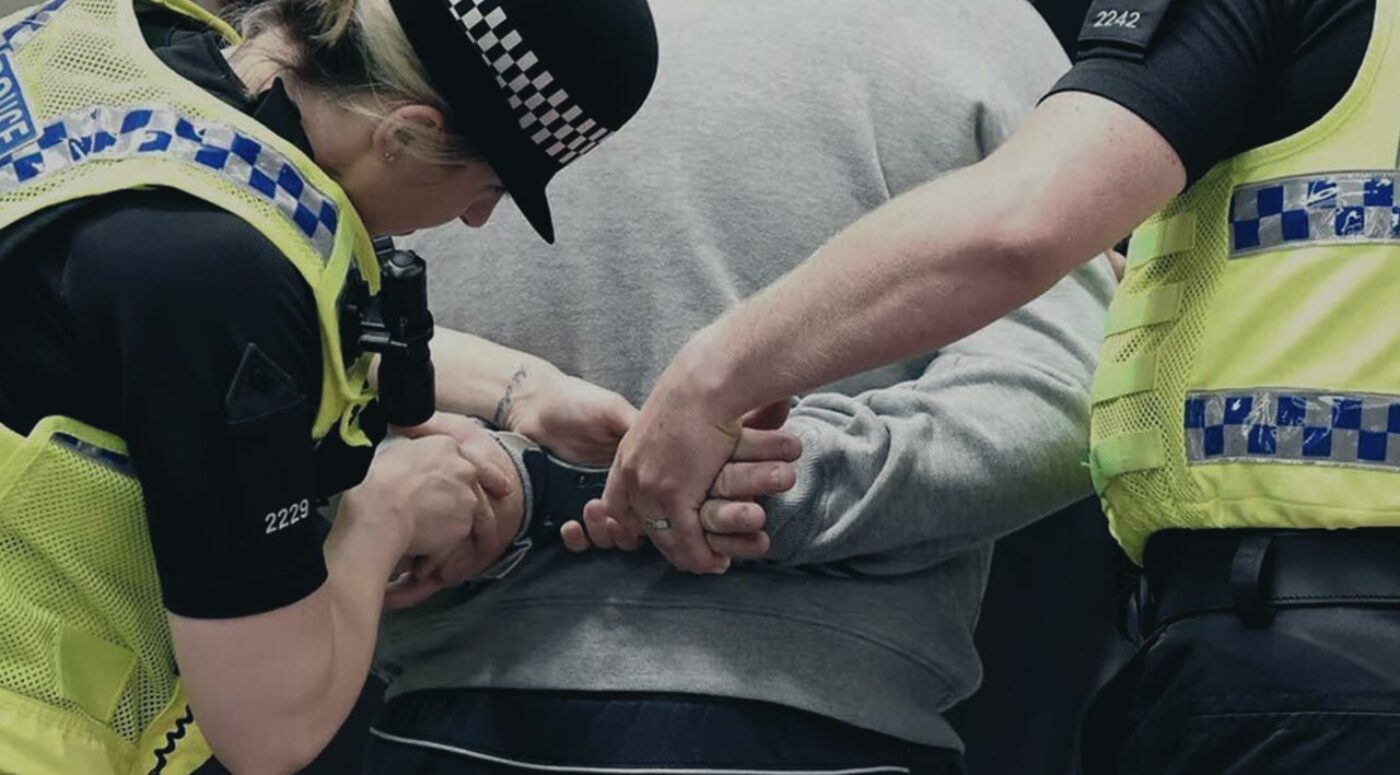

Conspiring to commit grievous bodily harm (GBH) is a serious criminal offence in the United Kingdom that carries significant legal consequences. Individuals who intentionally plan and conspire to cause grievous harm to others face severe penalties within the legal system. This article delves into the fundamental aspects of conspiracy to commit GBH, the typical progression of such cases, potential sentencing outcomes, and avenues for legal assistance. For individuals facing charges of conspiracy to commit GBH, especially first-time offenders, understanding the gravity of the situation and seeking legal counsel is essential, as it can make a substantial difference in the legal process and potential outcomes.
What is the offence of conspiracy to commit grievous bodily harm in the UK?
In the UK, the offence of conspiracy to commit GBH involves individuals plotting and planning to intentionally cause serious physical harm to another person. GBH is defined as causing serious injuries or harm to an individual, which can include fractures, disfigurement, or injuries that have long-lasting effects on the victim. The legal foundation for this offence primarily derives from common law principles and statutory provisions.
To secure a conviction for conspiracy to commit GBH, the prosecution must prove several key elements beyond a reasonable doubt:
- Conspiracy: The prosecution must establish that there was a conspiracy, which involves an agreement between two or more individuals to commit GBH. This agreement can be explicit or implied.
- Intention: The conspirators must have intended to cause grievous bodily harm to the victim. This intention is a crucial element of the offence.
- Act in Furtherance: There must be evidence to show that the conspirators took some steps or carried out acts in furtherance of the conspiracy, demonstrating their commitment to the plan.
Conspiracy to commit GBH is a grave criminal offence, and those found guilty may face significant penalties, including imprisonment. The severity of the sentence depends on various factors, including the specifics of the conspiracy, the level of harm intended, and any aggravating or mitigating circumstances.
What are some examples of conspiracy to commit grievous bodily harm offences in the UK?
Here are some examples of conspiracy to commit GBH offences in the UK:
- A group of individuals planning and conspiring to attack a rival gang member, intending to cause severe injuries or even death.
- Individuals plotting to carry out an assault that results in significant harm, such as broken bones, disfigurement, or permanent disability.
- Planning an attack involving the use of dangerous weapons or objects with the intention of causing grievous harm.
- Coordinating a physical assault on an individual with the aim of inflicting serious injuries.
- Conspiring to cause harm to a specific person through any means, including physical violence or other dangerous actions.
These examples illustrate the various situations in which conspiracy to commit GBH may occur, involving intentional planning and agreement to cause serious physical harm to another person.
What happens if you are suspected of conspiring to commit grievous bodily harm in the UK?
If you are suspected of conspiring to commit GBH in the UK, a series of legal procedures and consequences may unfold. Here is an overview of what typically happens when you are suspected of this offence:
- Investigation: The police will conduct a thorough investigation into the alleged conspiracy. This includes gathering evidence, such as communications, witness statements, and any physical evidence that may link you to the conspiracy.
- Arrest and Detention: If there is sufficient evidence to suggest your involvement in the conspiracy, the police may arrest you. You will be taken into custody for questioning. During this time, you have the right to remain silent and the right to legal representation.
- Interview: You will likely be interviewed by the police as part of their investigation. You must have legal representation during the interview to ensure your rights are protected and to avoid self-incrimination.
- Charge: If the police believe they have enough evidence to proceed, they may charge you with conspiracy to commit GBH or related offences. You will be informed of the charges against you.
- Court Proceedings: If you are charged, you will be required to appear in court to face the charges. The court proceedings may include bail hearings, case management conferences, and, if you plead not guilty, a trial. Having legal representation at this stage is crucial to navigate the legal process effectively.
- Sentencing: If you are convicted of conspiracy to commit GBH, the court will determine your sentence. Sentences for this offence can range from community orders and fines to substantial prison terms, depending on factors such as the gravity of the conspiracy and the potential harm intended.
The legal process for conspiracy to commit GBH can be complex and serious, given the nature of the offence. Seeking legal counsel is highly recommended to ensure you are adequately represented and can present a strong defence, especially if you believe you are wrongly accused or if there are mitigating factors to consider.
What is the sentence for conspiracy to commit grievous bodily harm?
The sentence for conspiracy to commit GBH is determined based on several factors, including the specific circumstances of the conspiracy, the level of harm intended, the defendant’s level of culpability, and the presence of any aggravating or mitigating factors. The Sentencing Council’s guidelines on GBH are used in determining the culpability and harm relevant to the case.
The maximum sentence for conspiracy to commit GBH is life imprisonment, reflecting the gravity of the offence.
The actual sentence imposed will depend on the individual case and the discretion of the judge presiding over the trial. Factors such as the level of harm intended, the degree of planning and premeditation, the involvement of weapons or dangerous instruments, and the presence of any aggravating or mitigating circumstances will all be considered.
Aggravating factors in conspiracy to commit GBH cases may include:
- The use of weapons or dangerous instruments in the conspiracy.
- Deliberate targeting of a vulnerable victim or victims.
- A history of violence or previous convictions related to violent offences.
- Evidence of a detailed and well-organised plan to cause serious harm.
- Attempts to evade responsibility or obstruct the investigation.
Mitigating factors, on the other hand, can include:
- A lack of previous convictions or a previously good character.
- Genuine remorse or a plea of guilty, indicating acceptance of responsibility.
- Cooperation with the police and a willingness to make amends.
- Positive steps taken by the defendant to address underlying issues that may have contributed to their involvement in the conspiracy.
The sentencing decision ultimately rests with the judge, who will weigh these factors and any others deemed relevant to determine an appropriate sentence. The goal of the sentencing process is to ensure fairness, proportionality, and justice while considering the unique circumstances of each case.
Will I go to prison if it is my first time conspiring to commit grievous bodily harm?
Whether someone goes to prison for conspiring to commit GBH, especially for a first-time offence, depends on several factors. Imprisonment is a possible outcome, of course, but it is not an automatic consequence for all first-time offenders.
The sentencing decision for conspiracy to commit GBH is influenced by various factors, including the specific details of the conspiracy, the intended harm, the level of planning, and the presence of aggravating or mitigating circumstances. A first-time offender with no previous convictions, who demonstrates genuine remorse and cooperates with the authorities, may be more likely to receive a less severe sentence, such as a lengthy community order or a suspended sentence, rather than immediate imprisonment.
That said, if the conspiracy involves a high level of harm, a well-organised plan, the use of dangerous weapons, or other aggravating factors, even a first-time offender may receive a custodial sentence, which could include imprisonment.
You should understand that the sentencing decision is at the discretion of the judge presiding over the case. They will carefully consider all relevant factors before determining the appropriate sentence, with the aim of achieving justice and proportionality in each individual case.
Where to get further help
If you find yourself facing charges of conspiracy to commit GBH or are already involved in legal proceedings, seeking expert legal defence is crucial. Early legal representation can significantly impact the outcome of your case. For a free, confidential, and supportive consultation about your options, get in touch with the team at Stuart Miller Solicitors. We can provide guidance, build a robust defence strategy, and ensure that your rights are protected throughout the legal process.
OUR COMMITMENTS TO YOU:
-
Responsive
A legal expert will consult you within 24 hours of making an enquiry.
-
Empathetic
We will always treat you with trust, understanding and respect.
-
Specialised
Your case will be handled by an expert who specialises in your type of offence.
-
Proactive
We will take early action to end proceedings as soon as it is practically and legally possible to do so.
-
Engaged
You will be kept updated on your case at all times. We will provide a named contact available to answer your questions.
-
Caring
We understand this is a difficult and stressful time for you and your family. Our team will support you every step of the way.
-
Tenacious
We will never give up on your case. We fight tirelessly to get you the best possible outcome.

